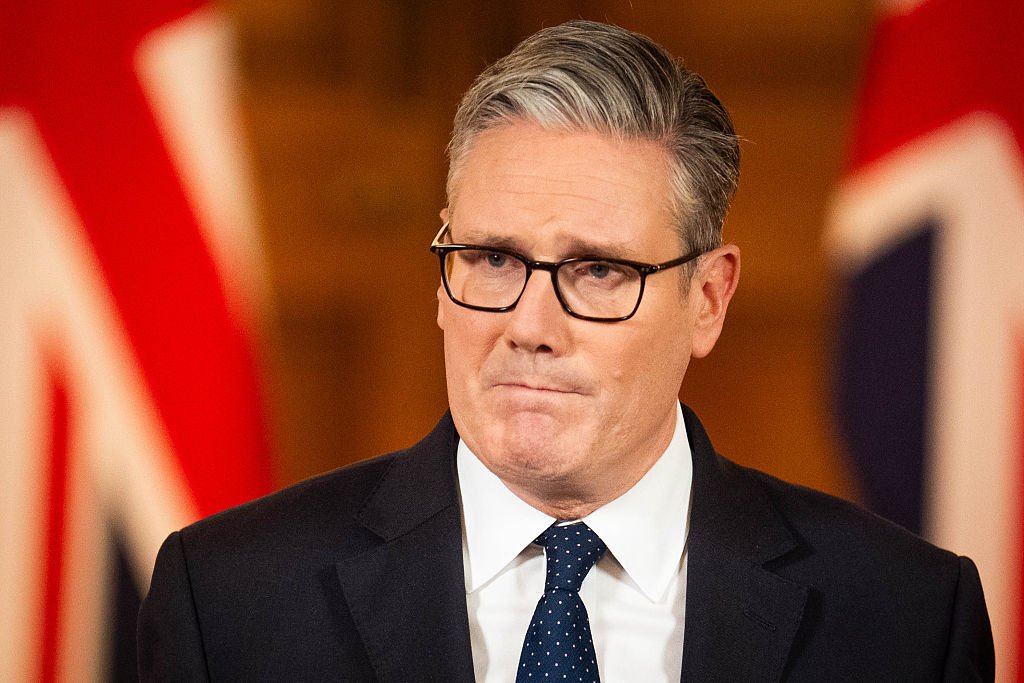Keir Starmer did not go into Prime Minister’s Questions with the intention of resolving the row over the collapse of the Chinese spying case: he merely wanted to avoid the pressure building too much. He announced in a long statement at the start of the session that the government would be publishing its three witness statements, and then spent the rest of his sparring with Kemi Badenoch arguing that this was all the fault of the previous government anyway.
His sneer led to a claim that will ensure this row doesn’t quieten down
That deferral of blame largely worked: there was a particularly good email that Starmer quoted, to roars of approval from his backbenchers, where Badenoch herself said ‘we should certainly not be describing China as a foe’. The Tory leader hadn’t liked the opening statement, which she described as ‘obfuscation’, and neither did she like this quote, accusing Starmer of failing to read to the end of it. She finished the quote, where she said China was a threat. ‘This whataboutery that he is doing neglects the fact that those spies were charged under a Conservative government,’ she said, adding: ‘They were let off under Labour.’
Badenoch also questioned whether it could really be true that the only decision maker in this whole process was the deputy national security adviser Matthew Collins, and that he did not discuss it with national security adviser Jonathan Powell. Starmer answered baldly ‘yes’, and insisted that no minister or special adviser was involved in the decision, though he then softened his line slightly by saying he would double check this. Badenoch picked up on that caveat, asking the chamber: ‘What’s the point of having a lawyer rather than a leader as Prime Minister if he can’t even get the law right on a point of national security?’ Starmer’s riposte was that he was a lawyer and understood the law and what had to be proven: ‘She’s clearly not a lawyer or a leader,’ he said, happily and with just a hint of an intellectually superior sneer.
But his sneer led to a claim that will ensure this row doesn’t quieten down: he argued that a meeting in September that was reported by the Sunday Times was not relevant to the decision-making process, and that ‘this is a red herring, a completely scurrilous allegation made by the leader of the opposition party’. But his answers were also something of a red herring, as they didn’t explain why the deputy NSA took the decision he did on assisting the Crown Prosecution Service with the case. Similarly, Badenoch pointed out that Starmer had contradicted points made by security minister Dan Jarvis about the timing of decisions and meetings. She told the chamber: ‘The Prime Minister can’t tell us why Jonathan Powell had a secret meeting, when the Prime Minister said he had no involvement in the case. He can’t tell us why his government did not provide evidence that China was a threat. I suspect the statements would prove that either he’s blaming his civil servants, he’s blaming the media, he’s blaming the last government. He cannot explain why he could not see this case through. He should have seen this case through.’
Starmer in turn accused the Tories of a ‘pathetic spectacle’ where they were refusing to take ‘responsibility for the fact they failed to update the law’. He added: ‘It was their failure, and they’re just slinging the mud. Meanwhile we are getting on with renewing our country… Labour is building a better future: they cannot come to terms with their past.’ It was a good political payoff, but it was hardly drawing a line under the row.








Comments